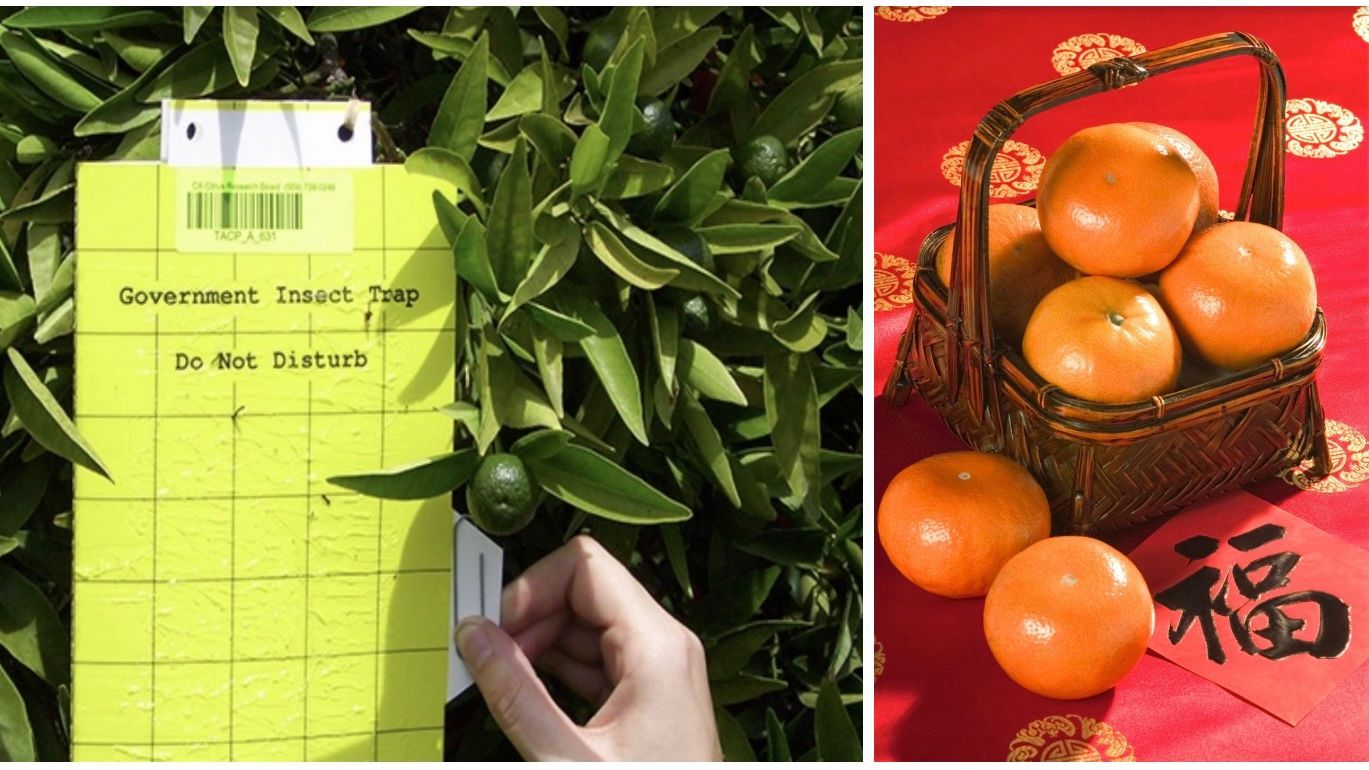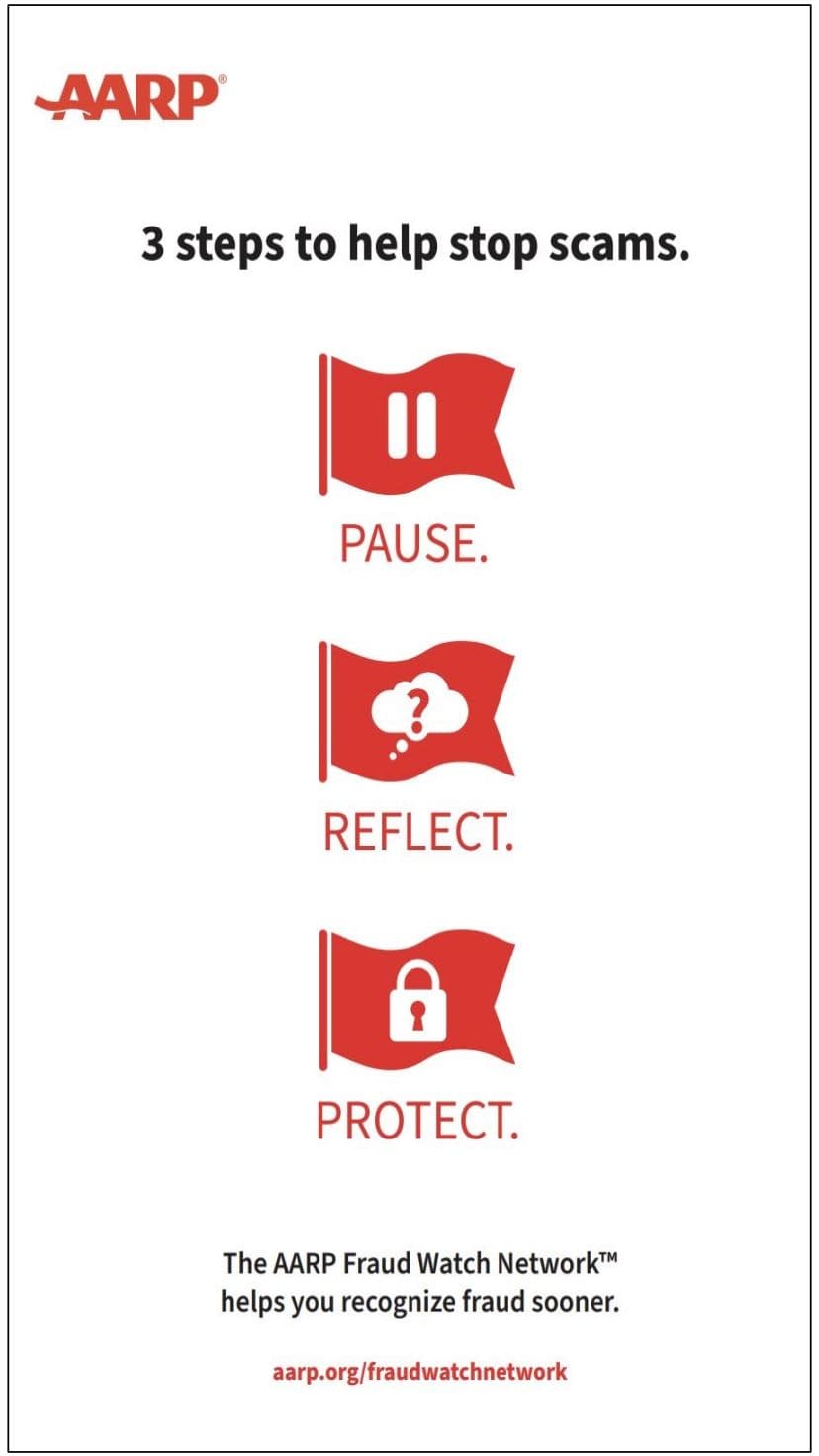Be careful not to spread insects and disease when gifting citrus this Lunar New Year

SACRAMENTO, Calif. – January 25, 2023 – The Year of the Rabbit is here! To ensure the citrus fruit you’re gifting this Lunar New Year embodies the wealth, luck and prosperity it is known for, the Citrus Pest & Disease Prevention Program (CPDPP) recommends the following best practices to protect California’s beloved citrus for years to come.
An insect called the Asian citrus psyllid (ACP) has been found in California and is spreading throughout the state, threatening homegrown citrus trees and the state’s citrus industry. The pest can spread Huanglongbing (HLB), a plant disease that kills citrus trees. Although it is not harmful to humans or animals, the disease is fatal for citrus trees and has no cure.
Healthy mandarins, pomelos, kumquats and other citrus fruit free of the insects and disease can be purchased from reputable grocers – this is the best way to ensure you are giving clean, high-quality citrus to your friends and family members as part of the holiday celebration. Homegrown citrus can also be gifted but poses a higher risk for transmitting the pest or disease. To be cautious, remove leaves and stems from homegrown citrus fruit and wash fruit thoroughly before gifting.
The best way to stop the spread of HLB is to prevent the spread of the ACP. HLB has been confirmed in more than 4,000 residential citrus trees across Los Angeles, Orange, San Bernardino, San Diego and Riverside counties.
California homeowners – 60 percent of whom own citrus trees – play an important role in protecting citrus in our state and are being asked to protect their backyard trees by searching for signs of the pest and disease.
The CPDPP offers the following additional tips to help prevent the spread of the ACP and HLB:
● Inspect trees regularly. Inspect for the ACP (typically found on new leaf growth) and HLB symptoms monthly, or whenever watering, spraying or pruning your trees. Learn what to look for here: https://californiacitrusthreat.org/pest-disease/
● Cooperate with agriculture inspectors. Cooperate with state agricultural officials who may be inspecting trees in your area. If you see an agricultural official, it may mean that the ACP or HLB has been found near your home.
● Do not move citrus. Don’t move citrus plants, leaves, or foliage into or out of quarantine areas or across state or international borders. Keep it local.
● Graft with care. Use only registered budwood with source documentation when grafting citrus trees.
● Keep ants off your citrus tree. Ants protect harmful pests like the ACP. Place ant bait around citrus trees and follow the product’s label instructions.
HLB affects all citrus plants and some relatives of citrus, like orange jasmine and curry leaves. If you think you’ve found the ACP or HLB, call the statewide hotline at 800-491-1899.
For more information on ACP and HLB prevention, visit: CaliforniaCitrusThreat.org.
* About the Citrus Pest and Disease Prevention Program:
The Citrus Pest and Disease Prevention Program is an initiative funded by California citrus growers and administered by the California Department of Food and Agriculture dedicated to combating serious pests and diseases that threaten the state’s citrus trees.
- Open Forum: Strong protest against unilateral street closure decision for SF Chinatown night market without merchant consultation
- Interim Police Chief Paul Yep honored for leadership to keep San Francisco safe with historic low crime rate and high police hirings
- An increase in flu activity seen in SF Bay Area, experts recommend everyone aged 6 months and older to receive the flu vaccine
- SB 1234 is fully in effect in 2026 and requires employers to offer retirement plans to all employees, full-time, part-time & short-term
- Six power outages in Sunset District impact residents and businesses among strings of outages in San Francisco in Dec. 2025
- California bans all plastic carryout bags at retail stores starting January 1, 2026, only allows recycled paper bags to be distributed to customers
- If someone’s vehicle blocks your driveway, San Francisco's 311 service will resolve it easier and safer for you
- U.S. Department of Homeland Security proposes green card status can be denied for Medicaid and SNAP recipients






